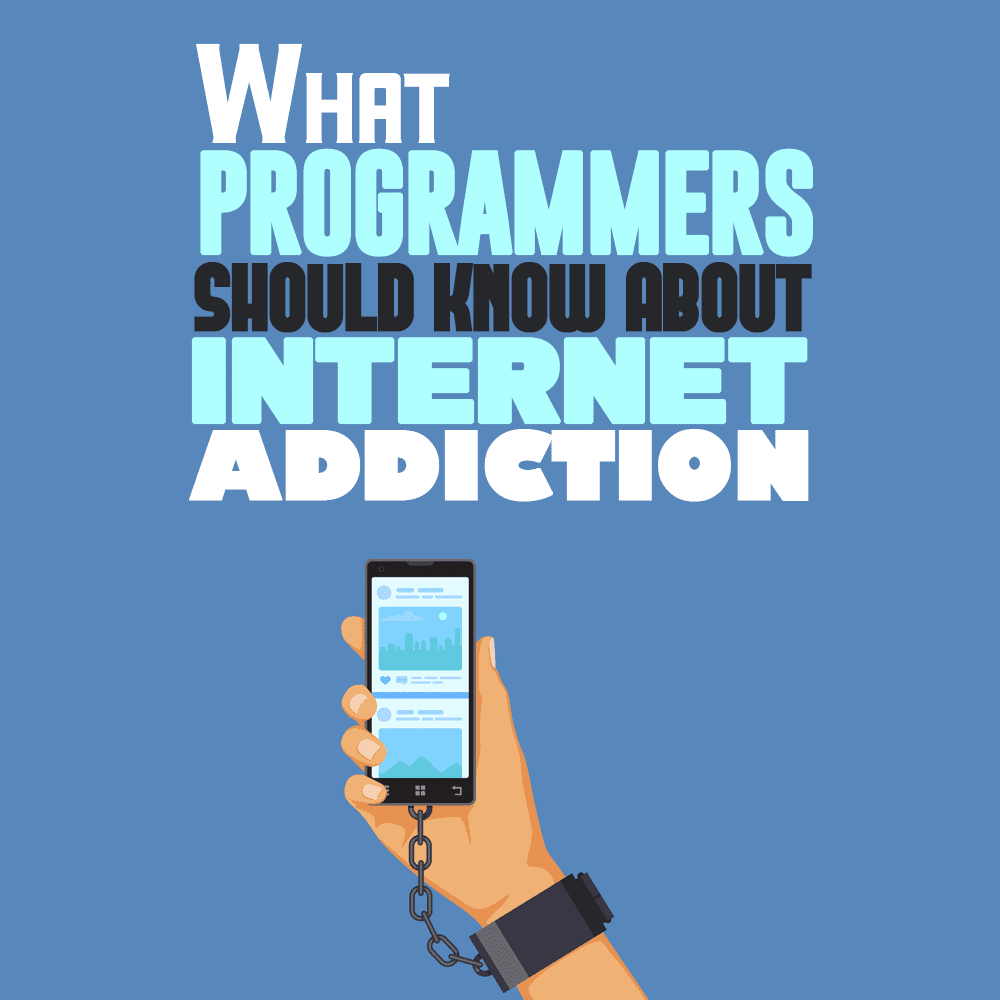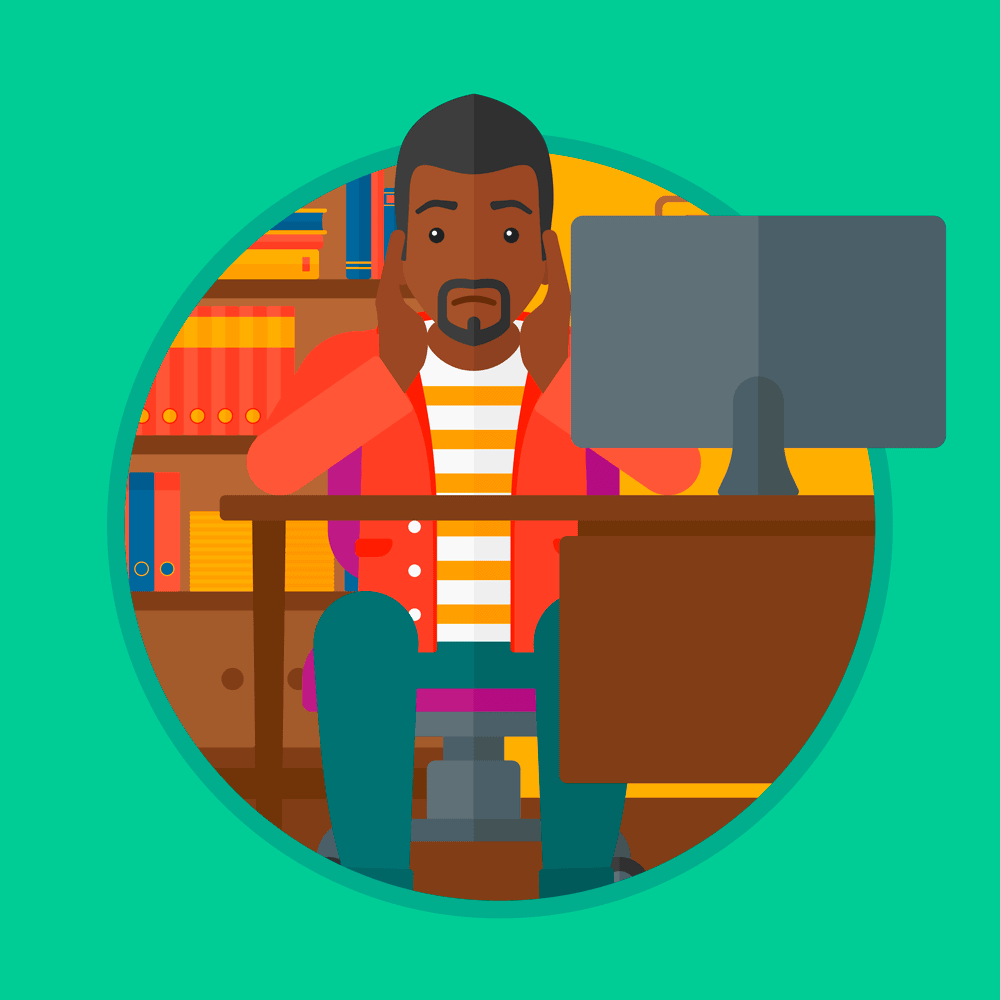
If you scroll through online questionnaires about internet addiction, you may find a lot of the questions unhelpful. Questions like “Do you spend more than six hours a day online?” don’t work for you. Of course you spend more than six hours a day online. It’s your job. You have to do things like learn coding languages and answer client emails.
For a programmer, an addiction to internet use may look a bit different than it would look for people who don’t work in the field. By learning how to spot the signs of addiction, you can protect yourself or get help if necessary. This article dives into the specifics of internet addiction and programmers.
Addiction and Dopamine
An internet addiction, like any other addiction, involves dopamine. Dopamine is a reward chemical that brings feelings of satisfaction and well-being.
As a reward chemical, dopamine’s job is to get you to repeat a behavior. This is why activities such as eating and exercise also produce dopamine: The dopamine release feels good, so you’re more likely to repeat the behavior that caused it.
Although the brain produces dopamine naturally, addiction hijacks this process. For example, the “ding” sound of an incoming email or social media notification can trigger a dopamine release. When someone clicks on the email or notification, the resulting dopamine sends a very strong “repeat this action” message. For programmers, this can cause distractions while they plan software development projects, market themselves, or do other important tasks.
How People Get Addicted to the Internet
How does all of this apply to internet use? Well, much of the internet these days is designed to be addictive. If you program websites, you already know that site owners want people to keep returning. The more people click on their sites, the more revenue those clicks generate. Websites use dopamine-boosting “rewards” such as bright colors to ensure that people return to them multiple times.
Think about social media, which offers images, notifications, and new information every time you scroll. All of those things spark dopamine production, which encourages you to log on again. For many people, this cycle leads to addiction.
Signs of Internet Addiction in Programmers
What does all of this mean for programmers? Many people have easy access to the internet, but programmers have to spend more time online than most people.
While others may be able to take internet breaks, programmers struggle to get away since their livelihood requires them to be present. And, of course, when you’re already online, it’s all too easy to click on your favorite entertainment site or social media app. If you’re concerned about internet addiction, look for the signs discussed below.
You Feel Anxious When Not Programming or Otherwise Online
Imagine going to a restaurant with some friends. You’ve all decided to turn your phones off for the entire meal so that you can enjoy talking to each other uninterrupted. The meal lasts for about an hour. How does the idea make you feel?
Do you feel restless or anxious at the thought? Do you worry that you might not be able to focus on the conversation? Maybe you worry about missing important information, or you wonder what will happen if someone tries to reach out.
If you have an internet addiction, then when you’re not on the internet, you may only be able to focus on getting back online. Being away from it for too long may create a sense of anxiety or panic, drawing you back in to use the internet again and again. Internet addiction is a lot like a nicotine addiction in this way. Internet “cravings” can be just as distracting as cigarette cravings.
You Compulsively Check Non-Programming Websites
Most of us check social media and other websites daily. That habit doesn’t always indicate an addiction. However, the important thing is why you log on.
When you’re not at work, do you go online because you want to? Or do you go online because you feel that you need to? Would you feel “wrong” or “off” if you didn’t go online? You may not realize why you check certain websites at first. As you find yourself visiting them throughout the day, ask yourself what prompted you to do so.
Addiction makes a substance or behavior feel more like a “need” than a “want.” If you need to log on, even when you’re not programming, you may have an internet addiction. The compulsion to go online can take you away from the moment, affecting how you interact with friends and family.
Your Internet Use Has Impacted Your Programming and Life

Think about your software development career, for instance. If you have an internet addiction, you might fall behind on projects because you spend work hours on non-work sites. Or you might lose focus and make mistakes as a result, which can get in the way of a profitable career.
In your non-working hours, you might have noticed that it’s harder to stay connected to friends and family. You might have also lost interest in leisure activities that don’t involve the internet.
You Have a History of Addiction or Other Mental Health Disorders
Addiction is complex, and it causes harm. The compulsion to check your devices can increase your anxiety, prevent you from enjoying the moment, and keep you from activities that you would have otherwise enjoyed. Some people are more vulnerable to it than others. It’s not just about the addictive behavior itself. Several factors go into addiction, including:
- Genetics — Like many other health conditions, addiction often runs in families.
- Stress — When stressed, people often seek comfort from addictive behaviors and substances.
- Brain chemistry — Again, addiction works by taking over the brain’s dopamine system.
- Environment — Familiar environments can make people fall into old habits, including addictive ones.
- Life circumstances — Addiction often has strong connections to trauma and hardship.
If you or any of your family members have dealt with substance abuse, you may be prone to internet addiction, too. Likewise, if you have another mental health condition, you may also have a higher risk.
You Never Feel Like You Have Enough Time Online, Even after Programming All Day
Addiction makes moderation virtually impossible, and that includes internet addiction. You might have dealt with this problem if you’ve ever tried to set screen time limits for yourself. A lot of people find that their designated screen time never feels like enough. No matter how much time they spend scrolling, they feel like they need more.
Try checking your screen time from your phone or computer. Does the number seem accurate? Mindlessly scrolling can make time feel faster. Unlike intentionally reading an article, for example, mindlessly scrolling can seem like just a few minutes, even if it takes much longer. Again, being mindful of why you go online can help you gain some clarity and build better habits.
How To Prevent Internet Addiction
Thankfully, internet addiction can be prevented. Try incorporating the following strategies as you balance work with personal internet use.
- Use Accountability — Ask a friend or family member to check in with you about your internet habits.
- Block Tempting Websites — If you often visit social media and entertainment sites at work, try blocking these sites on your work computer.
- Set Screen-Free Times — Designate times when screen usage is off limits. For example, you might practice screen-free weekends, or you can stay off social media before lunchtime.
- Set Time Limits for Apps — Most smartphones let their users set limits for specific apps. Decide which apps take the most of your time, and let your phone alert you when you’ve reached your limit.
When to Seek Help for Internet Addiction
However, maybe you’ve already tried all of the above suggestions, and you haven’t had much success with them. If that’s the case, then understand that you’re not the only one to run into this problem.
The brain’s reward system is a powerful thing. It’s responsible for some of the most important human behaviors. An internet addiction may seem simple, but remember that it involves a highly complex system. And because it involves both habits and brain chemistry, you may need some help to overcome your addiction.
If possible, ask a counselor or therapist about your options. Methods like cognitive behavioral therapy and support groups can make a big difference. For some people, medication can help, especially when the addiction is accompanied by a co-occurring disorder such as depression.
Internet addiction doesn’t have to take over your life, even if you work as a programmer. Of course, as a programmer, internet addiction can become more complicated for you than for the general population. You can take steps to protect yourself, prevent addiction, and even treat your internet addiction if you already have one. By asking for help, you can start regaining control of your time and attention.
